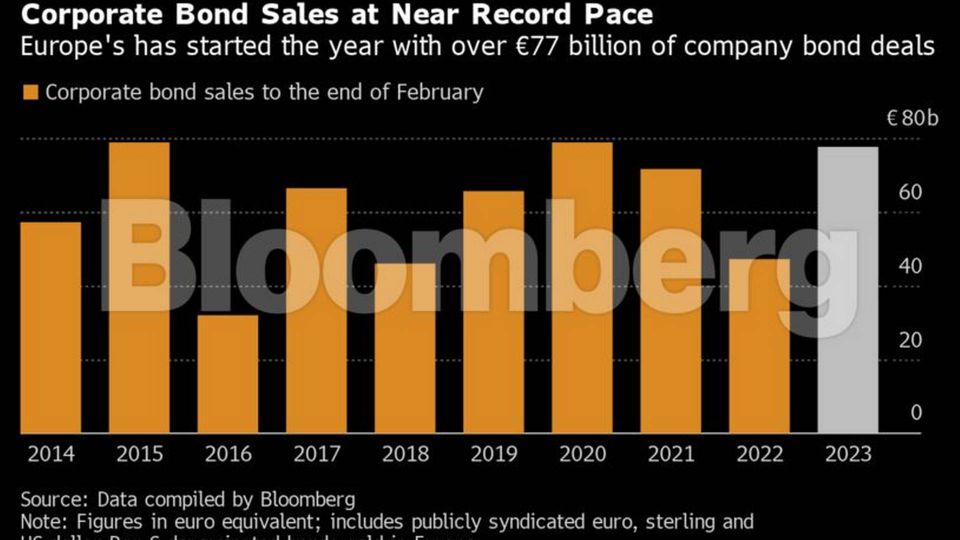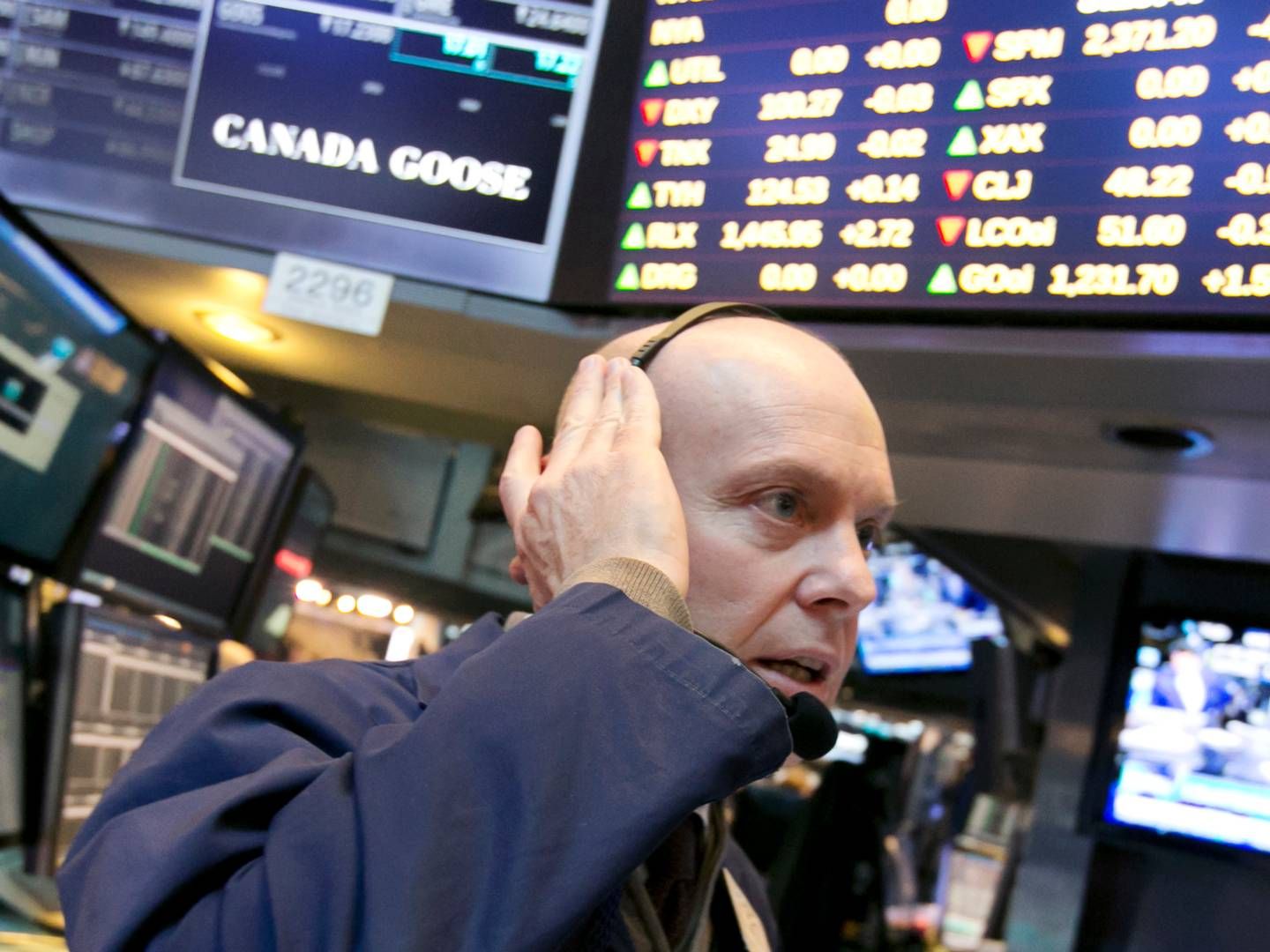Company bond boom set to shrug off ECB’s long-awaited pullback

March is normally one of the busiest months on the sales calendar as companies finish their earnings reports and seek to load up on fresh funds. With interest rates heading higher, borrowers including Siemens AG, McDonalds Corp., and AstraZeneca Plc have all dived into the market in recent weeks, pushing issuance from non-financials up more than 60% on last year to EUR 77.5bn (USD 82bn).
Fund managers have been snapping up the debt to grab yields at the highest in years. That should help make up for the loss of one of the market’s biggest buyers, as the ECB halves the pace of its reinvestments in bonds — a long-awaited pullback that risked adding fuel to February’s slump in market prices.
“There is a healthy pipeline for March after the good earnings period,” said Giulio Baratta, BNP Paribas SA’s head of investment-grade finance debt capital markets for EMEA. “For corporates, the European Central Bank hasn’t been a condition for success recently, it has been an element in pricing but deals are performing without them.”

The ECB is joining other central banks in bringing to a close years of credit market support that’s helped hold down borrowing costs. It’s part of a “massive swing” underway as they flip to net bond sales of USD 1trn in 2023, in a process known as quantitative tightening, Fitch Ratings said in a report.
Even amid the ECB’s pull back, average spreads on high-grade firms’ euro-denominated debt remain at relatively low levels. Although some firms may have front loaded sales while the ECB was still buying, this means the debt bonanza is likely to continue, according to Matthew Bailey, executive director of European credit strategy at JPMorgan Chase & Co.
“Primary market seasonality is very strong, and March is typically one of the heaviest months of the year as issuers emerge from their blackout periods for fourth-quarter earnings,” Bailey said.
The ECB will now only be buying non-financial corporates with better climate performance and green corporate bonds. Fitch Ratings analysts led by Brian Coulton do expect the lack of broader purchases to ultimately test the resilience of bond market functioning.
For now, any market wobbles have been more likely due to the prospect of further increases to borrowing costs, with high-grade company bonds already erasing almost all their early-year gains as stubborn inflation data leads traders to reverse bets on rate cuts.
That’s pushed average high-grade euro bond yields up to about 4.4%, the highest since October, according to a Bloomberg index. Still, that’s a pull for funds looking at buying new debt deals. An Orsted AS 12-year green bond paid a coupon of 4.125% in February, up from 1.5% in 2017. And Siemens’ 8.5-year note offered 3.375%, up from just 0.25% for a nine-year bond in 2020.
“While the end of central bank support is a technical liquidity drain, participation has gone down and the quantitative tightening has been taken into consideration,” said Ingo Nolden, co-head of European corporate debt capital markets at HSBC Holdings Plc. “Liquidity remains healthy, solid and real, with investment grade offering decent returns for the first time in years.”
Related articles
European investors riding buyback boom face risk of pullback
For subscribers
Brexit deal puts disliked UK assets on long road to recovery
For subscribers
















